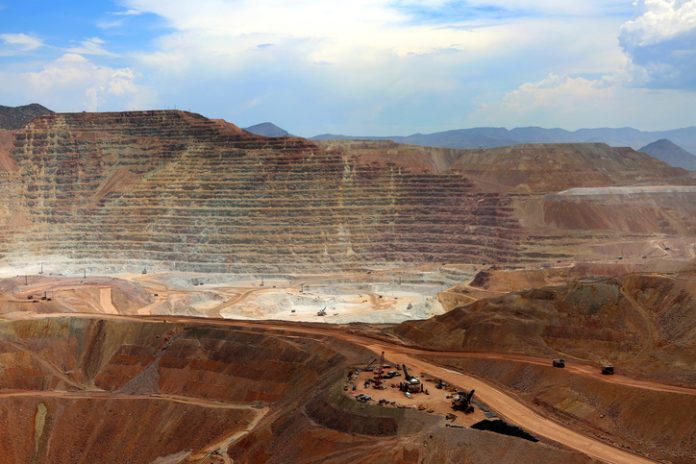U.S. District Judge Steven P. Logan, of the U.S. Court for the District of Arizona, denied a request to by members of Native American tribes in Arizona to block a land swap between the U.S. Forest Service (USFS) and Resolution Copper, a mining company.
Some Native Americans formed a group calling itself Apache Stronghold, to challenge the land swap. They argued mining would destroy an area by some Arizona tribes, including some Apaches.
In rejecting the claim, Logon noted Congress had explicitly approved the land exchange as a rider to a Defense Department bill passed in December 2014.
Mining Common
The law directs the USFS to swap 2,422 acres of land above a large copper deposit within the Tonto National Forest in Arizona, for 5,459 acres of lands owned by Resolution scattered around Arizona.
The federal land being exchanged, Oak Flat, is currently the site of a popular camp ground. Arizona tribal peoples in the region have also claimed Oak Flat as spiritually important area for decades.
Although below ground mining has been common in the region for more than 100 years, the mining technique proposed by Resolution Copper, will have larger, more visible impact. Resolution Copper proposes digging a tunnel about 7,000 feet below ground level to reach a large deposit of copper ore, then allowing the tunnel to collapse, creating a crater which the company would then excavate to reach the ore. Under existing federal law, Resolution Copper would have to reclaim and restore the land after mining operations are completed.
The USFS issued a final environmental impact statement on January 15, starting a 60-day clock to finalize the land swap. The agency has said the land exchange will not proceed until March 11, four days before the statutory requirement of 60 days as stated by the defense act rider.
No Standing, ‘Plenary Power’
In requesting the District Court to block the land exchange Apache Stronghold cited the 1852 Treaty of Santa Fe between Apache leaders and the U.S. government.
Logan rejected the claim, noting the group, Apache Stronghold, was not a recognized party to the treaty and thus did not have direct standing to file the challenge the law, even though many of its member signatories to the lawsuit were descendants of natives who had signed the treaty.
The treaty created a trust relationship between some individual members of Apache Stronghold and the federal government. However, Logan ruled under the doctrine of “plenary power,” the U.S. government is empowered to have a final say in tribal affairs and to modify trust conditions not specifically guaranteed by law to tribal peoples like education, health care, and unemployment benefits. The Treaty of Santa Fe did not grant a specific benefit or control over the affected area to tribal peoples, Logan determined.
“With this plenary power in mind, the Government ‘has often structured the trust relationship to pursue its own policy goals,’” Logan wrote, referencing a 2011 case clarifying the federal government’s trust relationship with tribes.
Logan concluded Congress’ passage of the defense bill rider, and previous higher courts’ rulings in similar conflicts between tribes and the federal government, extinguished any title or legal standing the Apaches may have held on Oak Flat.
“This Court’s hands are tied both by Congress and by the Constitution,” Logan wrote. “It isn’t something the Government gave to the Western Apaches, like unemployment benefits, and then took away because of their religion.”
H. Sterling Burnett, Ph.D. (hsburnett@heartland.org) is the managing editor of Environment & Climate News.


























